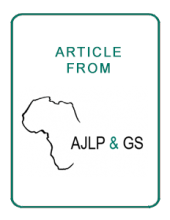Land Library Search
Through our robust search engine, you can search for any item of the over 73,000 highly curated resources in the Land Library.
If you would like to find an overview of what is possible, feel free to peruse the Search Guide.
/ library resources
Showing items 91 through 99 of 832.Les agrumes représentent la première culture irriguée dans la plaine de Trifa (Berkane, Maroc) avec une superficie en extension continue. Ceci accentue les pressions sur les ressources en eau déjà limitées dans la région.
Comme tout domaine vital, le domaine d’administration du foncier est un univers de discours peuplé par des termes et des concepts dont le sens et la sémantique forment un système de connaissances.
The complexity of tenure claims in the informal settlements has been difficult to incorporate into the formal systems owing to their dynamic and continuously changing nature. Innovative tools are therefore required to capture these claims.
The accelerated exploration of sub-surface mineral resources across much of Africa has created the need for proper administration of sub-surface land rights. The trend world-wide is a separate cadastre for mining.
This article discusses different issues pertaining gender and land governance with focus to access and control of land by rural women and how this affects their resilience in G5-Sahel region- Chad, Niger, Burkina Faso, Mali, and Mauritania.
This study examines the effect of land rights on agricultural outcomes in Rwanda. We characterize the effects of land rights from two perspectives. The first one is land rights indicated by the right to sell and guarantee land and the second one is land titling.
Land and natural resource tenure security is a central yet often neglected area for economic development and poverty reduction in the developing world. Land is fundamental to the lives of poor rural people. It is a source of food, shelter, income and social identity.
Food insecurity has been a major global development concern. Hence, SDG Two seeks to achieve Zero Hunger by 2030. The situation is severe in sub-Saharan Africa, where customary practices deprive women of land ownership and limit their access rights.
Les femmes de la région de l’Extrême-Nord du Cameroun font face à un environnement sociologique qui limite leur accès au foncier : mariage, illettrisme et ignorance des dispositions règlementaires, complexité et coût des procédures de sécurisation foncière, facteurs financiers...

